#decolonization books
Text
My (recently wealthy) older sister and her husband bought some land and got ducks and they have this big plan to grow crops and sell produce and she keeps talking about "homesteading" 🤢 and since she lives in an overwhelmingly white community it's unlikely any of her farm friends are gonna call it out, so I keep meaning to like. Look up some books to gift her for xmas that offer better terminology and an At Minimum Less Colonial perspective and introduction to the concept of a voluntary land tax/land acknowledgement before she gets into this stuff too deep and starts making money off it (bc I know she won't take it on my authority) and I keep forgetting to google resources. So this is both an accountability post for me to not forget to do this but also a request for recommendations if any of y'all have some tyyyyy
#how should i tag this hm#book recommendations#decolonization books#decolonizing agriculture#uhhh#subsistence farming#hobby farming#thats the thing tho is like#why cant she just call it hobby farming her animals are pets and her home is barely outside of suburbia#anyway#shes *famously* resistant to unsolicited advice so i want to come at this tactfully#indigenous knowledge#voluntary land tax#farming resources#permaculture#against my better judgement i will add the#homesteading#tag#but also 🔫 block on sight to anyone with even a whiff of weird energy
71 notes
·
View notes
Text
I think one of the easiest ways for me to mistrust a book and all it’s saying is to see how wrong it gets history about Jews.
This came about because I’m reading a book on indigenous activism and theory and it’s really good!
Too bad I can’t trust anything about it because I’m their little “history of colonialism” section they went “the three largest religions of the world-Christianity, Islam, and Judaism (collectively called the Abrahamic religions”.
Bestie. Jews are .2% of the global population. If you’d done a basic google search it would’ve told you the largest religious groups are Christianity, Islam, irreligion, Hinduism, and Buddhism, each of which have over 5% of the global population as adherents. It takes about five seconds to check that and see if you’re being accurate.
If your book is trying to be a reputable source of information and you can’t even put 5 seconds of effort into basic factual double-checking, you are not worthy of my trust about anything else you say.
#judaism#jumblr#it’s a good book otherwise!!#I was super into it#and then they did this#and also implied that Jews believe they’re superior to others#and that Judaism controlled Europe and the Middle East#they lumped it in with Christianity and Islam so it’s harder to see as blatantly wrong#but if you can’t do a second of detangling judaism from Christianity#in your book about decolonization#you are. Maybe not as decolonized as you thought
967 notes
·
View notes
Text
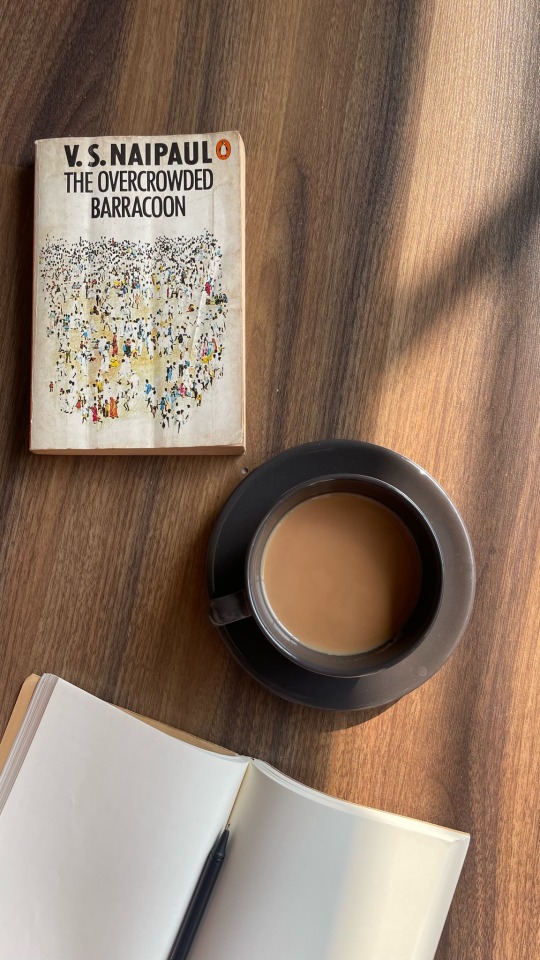

Naipaul first visited India in the 1960s, a journey that "broke his life into two" — the same decade as when he extensively travelled the postcolonial ‘Third World’. This is articles from those years. A clinical and moving bunch on the impossibility of decolonisation and the long shadow of empires; on his encounter with India in a decade of famine, war, drought, and reform; a fragmented country "without even an idea of a graded but linked society"; on the teeming mass of former ‘colonials’ who can’t help but seek out a metropolitan life.
Loved this to bits.
#booklr#books#stuydblr#coffeeblr#study aesthetic#bookstagram#decolonization#v s naipaul#reading#postcolonialism#india#study space#coffee aesthetic#book quotes#book photography#studyspo#academia#historyblr#gradblr
481 notes
·
View notes
Text
I've taken down the Henry Kissinger booklet sold by Jacobin because I've since found out the organisation is a piece of shit that argued against lockdowns and praised eugenicist COVID protocols that's led to the genocide of disabled people in the countries that implemented them. Disabled genocide is every bit as devastating as ethnic, even though it tends to be quieter. If your leftist praxis makes you horseshoe around to neoliberalism and fascism, you're not only worthless, you're actively as harmful. I regret I may have motivated anyone to give these people money, and I apologise for promoting them.
Instead, you can download The Trials of Henry Kissinger by Christopher Hitchens from my gdrive (feel free to rummage around in it). I leave you with this:


#henry kissinger#free palestine#death to america#death to israel#us politics#decolonization#colonialism#imperialism#western imperialism#white supremacy#us war crimes#genocide#social justice#knee of huss#books#twitter#jacobin
228 notes
·
View notes
Note
JUST FINISHED THE SKIN STEALER'S SON. YOU ARE A GENIUS. I WANT TO CRY.
I am sure Anon is crying tears of joy. This is certainly nothing to be concerned about. Please read my very feel-good book where everyone has a good time and gets to eat baked goods at the end
#there's reindeer petting and reforesting and decolonization!#there's cute round seal babies being cute and round and sometimes human!#there's an aroace protagonist missing significant plot points because the plot points look like they're going to kiss!#wait what#Skimmed The Kissing Part Lost The Plot: the relatable aroace experience I've always wanted in my literature#fox's tongue and kirin's bone#the second book is still free to read on Royal Road for a few more days#the significantly less typo-ridden version is on pre-order through my website
88 notes
·
View notes
Text
The pursuit of full humanity, however, cannot be carried out in isolation or individualism, but only in fellowship and solidarity; therefore it cannot unfold in the antagonistic relations between oppressors and oppressed. No one can be authentically human while he prevents others from being so. Attempting to be more human, individualistically, leads to having more, egotistically, a form of dehumanization.
— Paulo Freire, Pedagogy of the Oppressed.
Follow Diary of a Philosopher for more quotes!
#Paulo Freire#Pedagogy of the Oppressed#book quotes#quote#quotes#colonization#colonialism#imperialism#neocolonialism#decolonize the university#gradblr#studyblr#philosophy quotes#philosophy#chaotic academia#academia#capitalism#oppression#systems of opression
129 notes
·
View notes
Text


ONLY FRIENDS | EPISODE 4
YOUR EMERGENCY CONTACT HAS EXPERIENCED AN EMERGENCY
by CHEN CHEN (2022)
#made this purely because i started reading Your Emergency Contact yesterday morning while waiting for only friends#and so part of me feels I predicted the episode title#book review so far really enjoying this very honest personal poetry collection about his experience as a queer asian american#and tackling themes of grief and immigration and decolonizing poetry as a field#it is stuck in my head like a song so needed to gif#but anyway really loved this episode and how firmly mew was setting up boundaries#i continue to be fascinated by mew#ofts#onlyfriendsedit#*mine#*mygifs
139 notes
·
View notes
Text
"There's no such thing as neutrality. The people who use that label are people who unknowingly, for the most part, are dedicated to the support of the status quo."
-Myles Horton & Paulo Freire
#anticapitalism#justice#equity#equality#human rights#books and libraries#quotes#free palestine#gaza#landback#indigenous rights#decolonization
124 notes
·
View notes
Text
Stans claiming sjm isn’t a zionist are so delusional. It’s not even about her traveling to Israel and ‘feeling proud’ (which is zionist in general for several reasons but I digress) Her books are full of zionist and colonialist ideology. In TOG her protagonist is a literal colonizer who thinks she should conquer the world to ‘help’ it. The human rebels in TOG are written like cowardly ineffectual idiots who only get in the protagonists’ way. In ACOTAR, an ex slave is shat on by the narrative & the main characters for…*checks notes*…manipulating and then killing a slaver. He’s treated like a villain even after he proves himself (at BEST he’s considered morally grey by the end). In CC she specifically portrays the human rebels to be LITERAL child killing psychopaths who murder innocent vanir for no reason. A rebel leader shoots several vanir who were helping them. Like they bring them supplies and she has them killed on the spot. Just bc she’s EVIL I guess. And then the protagonists sabotage the rebellion’s weapons and ruin one of their bases because of it and it’s portrayed as this great act that will preserve peace (in a society with literal slaves where certain minorities are ALWAYS born slaves or second class citizens). The vanir (some of whom LITERALLY EAT HUMANS) are portrayed as innocent victims of violent extremism, instead of being portrayed as colonizers who willingly benefit from the suffering of humans/slaves. (I say the Vanir are colonizers bc in the w second book we find out the Vanir came from other worlds and the CC world originally belonged ONLY to humans but humans aren’t even viewed as full citizens and are more often slaves). These are Zionist beliefs. Focus on more than the smutty bits and you wouldn’t be so shocked.
#anti Sarah j mass#anti sjm#anti acotar#anti aelin#anti tog#anti rhysand#it’s like when ppl were shocked jkr is a zionist HELLO???#ITS LIKE YOURE NOT READING THEIR BOOKS#I always know a colonizer in fiction if they portray violent decolonization as immoral and not inevitable
81 notes
·
View notes
Text
Instead I say: Falasteen
Because I hope
That when the colonizer comes for me
Somebody says my name right in the eulogy
Like my mother intended
With all the history of my homeland
I hope in one final act of rebellion
I refuse to fit comfortable in their mouths
I hope these consonants cut their tongues
I hope they choke on these guttural vowels
#free palestine#writing#writeblr#poem#poetry#quotes#books#love#spilled writing#booklr#spilled thoughts#free gaza#palestine#hands off rafah#decolonization
33 notes
·
View notes
Text
I’ve been meaning to make a post like this for a while, so here are some fiction anti-colonial/anti-apartheid/anti-genocide books that I read for the cultural studies concentration of my literature degree, that I think are super readable/accessible and don’t see recommended often:
1. The Association of Small Bombs by Karan Mahajan

A novel about a boy who was a victim of a terrorist attack as a child and how he becomes radicalized by the same terrorist group that killed his friends as a young adult.
Additional/background reading:
youtube
2. The Story of a Brief Marriage by Anuk Arudpragasam
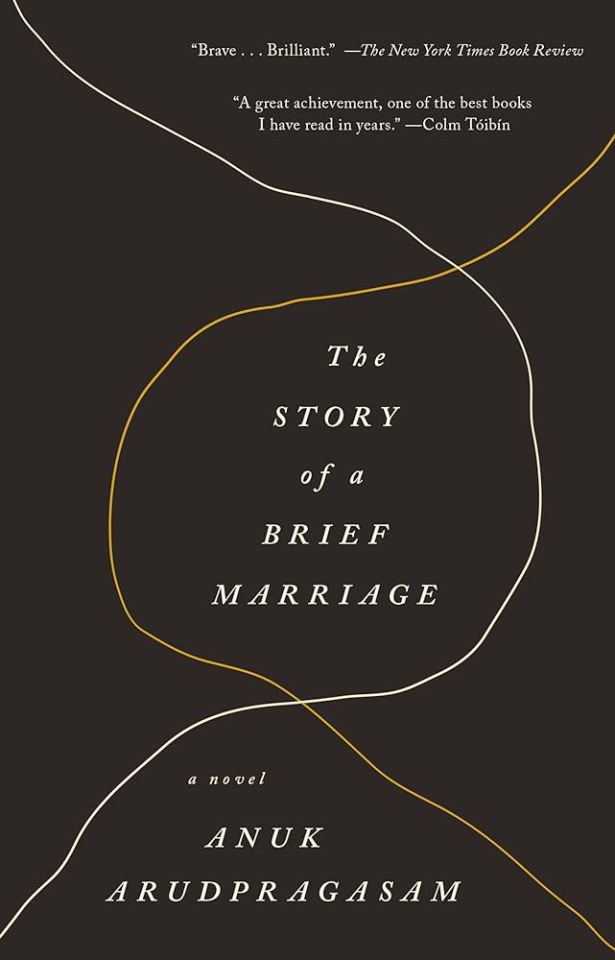
a 24 hour snapshot of the last few weeks of the Sri Lankan civil war where the Sri Lankan goverment bombed a no fire zone, killing as many as 70,000 civilians, the vast majority of whom belonged to the Tamil ethnic minority. (this book is extremely graphic but very worth reading imo)
Background/additional reading:
3. White Teeth by Zadie Smith
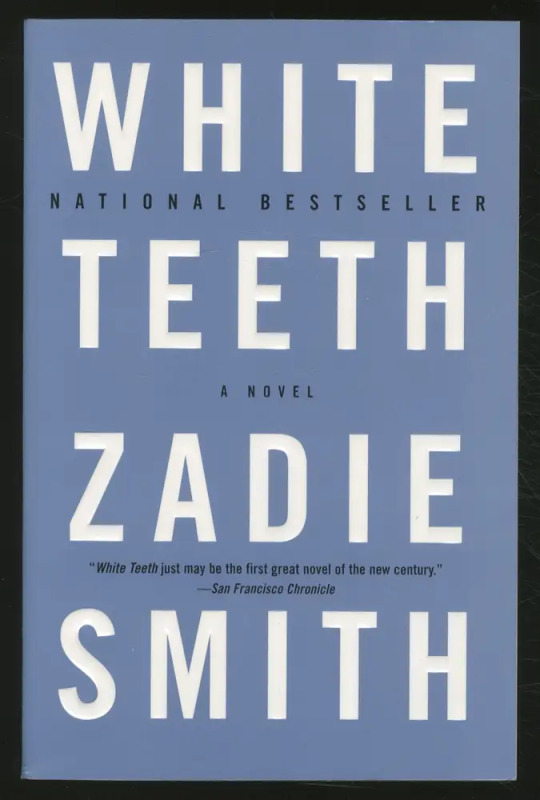
A post-colonial novel spanning several decades centering on two WWII veterans living in Britain; one a white Englishman, one a Bangladeshi immigrant.
additional/background reading:
4. An Imperfect Blessing by Nadia Davis

A novel about the Indian community in South Africa, told primarily through the lens of a teenage girl and taking place during the dissolution of the apartheid state.
background/additional reading:
5. Home Fire by Kamila Shamsie

A modern retelling of Antigone set in post-9/11 Britain and Pakistan.
additional/background reading:
#decolonize your bookshelf#book rec#book list#aka a list of books that changed my brain chemistry (/pos)#im also gonna put this on twitter i think#none of these are directly related to current events but I don't think having global historical perspective hurts#and beyond that these are all really good books (imo) that can be easily added to a reading list#most of them probably dont have a long wait at your local library either since idt any of them are trendy rn
56 notes
·
View notes
Text
Decolonizing Palestine (2023) by Mitri Raheb: a Palestinian Christian’s call for a theological paradigm shift
As I dig into various responses to Israel’s colonization of Palestine, this book has become my top recommendation for Christians.
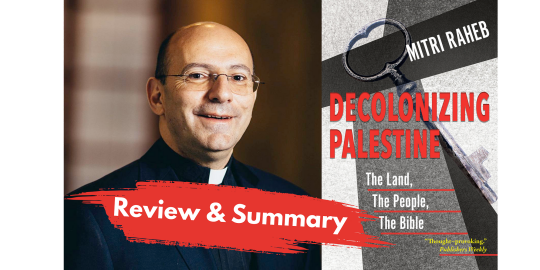
Lutheran pastor Dr. Mitri Raheb (b. 1962) is Palestine’s most widely published Christian theologian. His latest text, Decolonizing Palestine: The Land, the People, the Bible, could hardly have been more timely, coming out just a few months before the events of October 7, 2023.
If you are Christian — or are otherwise interested in unpacking how Christian theology has fueled Israeli settler-colonialism, and what Christian theology that centers and supports the Palestinian cause might look like — I strongly urge you to read the book in full. But if you don't have the time or inclination, I've published a Medium article that provides a thorough summary of his book.
Click here for the full review & summary of the book; what follows below the is a much briefer summation of Raheb's main points:
Western Christian theology today is dominated by Christian Zionism, all forms of implicitly endorse the oppression of Palestinians.
While conservative forms of Christian Zionism, with their focus on Israel’s supposed role in the Second Coming, tend to be centered, Raheb proposes a definition of Christian Zionism that reckons with “liberal” forms of Christian Zionism as well.
His definition emphasizes action over belief: “I argue that Christian Zionism should be defined as a Christian lobby that supports the Jewish settler colonialism of Palestinian land by using biblical/theological constructs within a metanarrative while taking glocal considerations into account.”
A paradigm shift is urgently needed in Christian theology, one that applies the lens of settler colonialism to our biblical interpretation.
Of the book’s four chapters, much of the first two focus on presenting Palestinian history through this lens, successfully arguing that modern Israel is a settler colonial state funded by Western powers:
“Today, empire is bigger than one state, nation, or military power. …Israel is part of this empire and is sustained by it” with both the “hardware” of military weapons, and the “software” of “a biblical blueprint that paints colonial practices with theological justifications of a ‘promised land’ and ‘chosen people.’”
To move towards a decolonial theology, our two hermeneutical keys are the land and the native people of Palestine. Understanding Palestine as:
the name of the “multiethnic, multicultural, and multireligious region that was able to include diverse identities and peoples within its boundaries” for the past 2,500 years; and
a land on the margins of “five regional empires that have determined its fate” for millennia,
we come to recognize that the voices lifted up in the Bible are colonized voices, those who are oppressed by and who resist Empire.
This lens helps us understand the theme of chosenness or “election” as well:
in Deuteronomy, Isaiah, and elsewhere in scripture, “Election was and will always be…a promise to those weak and powerless, to those who begin to despair about themselves. …It is with a notion like election that the people of Palestine were able to face the diverse imperial occupations throughout millennia.”
Therefore, the appropriation of the concept of election by various imperial powers, from the British Empire to the United States to modern Israel, is completely contrary to its biblical significance.
That sums up Raheb’s main points in Decolonizing Palestine; for more information, go read his book — or read my full article over on Medium!
#decolonizing palestine#mitri raheb#palestinian christians#palestinian theology#christian zionism#free palestine#books#essays
26 notes
·
View notes
Text
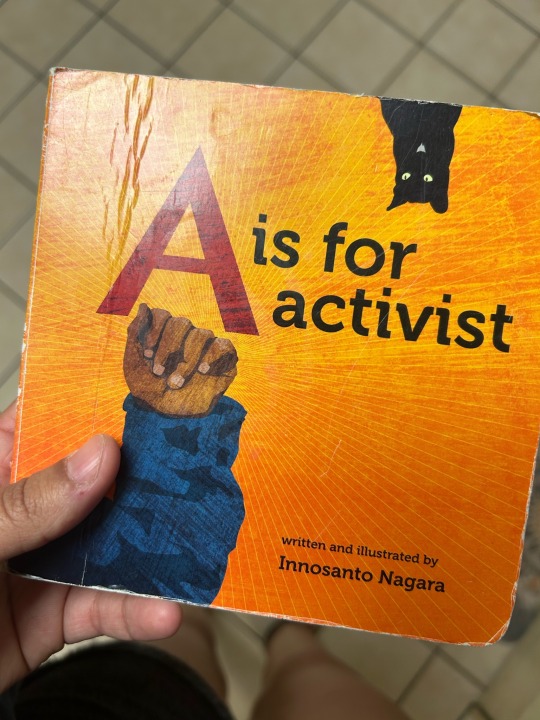
In case y’all ever wonder what kind of teacher I am… it’s the kind that brings books like this into the classroom 😌😌
#mine#text post#also I suggested another book to my boss for our teacher book study about being antiracist#and centering humanity and justice and equity in the classroom#basically decolonizing education lol#this is me ✨✨✨
13 notes
·
View notes
Text
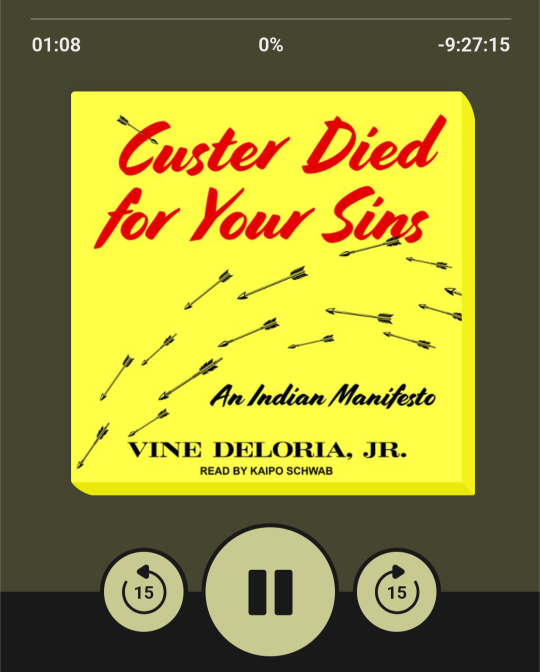
I've waited 2 months for this to be available
The book was noteworthy for its relevance to the Alcatraz-Red Power Movement and other activist organizations, such as the American Indian Movement, which was beginning to expand. Deloria's book encouraged better use of federal funds aimed at helping Native Americans. Vine Deloria, Jr. presents Native Americans in a humorous light, devoting an entire chapter to Native American humor. Custer Died for Your Sins was significant in its presentation of Native Americans as a people who were able to retain their tribal society and morality, while existing in the modern world.
From wiki
The book description:
"In his new preface to this paperback edition, the author observes, "The Indian world has changed so substantially since the first publication of this book that some things contained in it seem new again." Indeed, it seems that each generation of whites and Indians will have to read and reread Vine Deloria’s Manifesto for some time to come, before we absorb his special, ironic Indian point of view and what he tells us, with a great deal of humor, about U.S. race relations, federal bureaucracies, Christian churches, and social scientists. This book continues to be required reading for all Americans, whatever their special interest."
#vine deloria jr#custer died for your sins#indigenous activists#us history#native history#american history#indigenous liberation#native liberation#native books#indigenous books#american indian movement#Alcatraz Red Power movement#decolonize#decolonization
24 notes
·
View notes
Text
Guys, Z-library is back up, but it desperately needs our help.
Z-Library is one of the largest online libraries in the world. We aim to make literature accessible to everyone. Today, Z-Library contains over 12,140,413 books and 84,837,000 articles Z-Library has many servers all over the world. Our stored data now totals more than 220 TB! Every month, millions of people use Z-Library for their purposes — and that means we are on the right track. But it will be difficult to achieve our goals without your help.
As you may know, almost all public domains of the library were blocked in November 2022 by order of the US Secret Service. The inner infrastructure of the project suffered some substantial damage too. Today, we are still under unprecedented pressure. At the moment, Z-Library is going through the hardest times in all the 14 years of its existence. The library might work with interruptions, and we ask you to be patient. Be sure – we are doing everything possible to provide free access to knowledge for millions of people across the globe, and we expect you to help us with that and to support us.
But despite all the difficulties, the library continues to function and develop. We have recently introduced several important features: the new recommendations section, comments to booklists, the new web-site menu, personal domains and Telegram Bot, and more.
Your active support gives strength to our Team and inspires to work. Each donated dollar is not only money for us, but it is also the confidence that you really need our project!
On 15 March 2023, as in March and September of each year, we launched additional fundraising to project maintenance and development. We will be extremely thankful for every dollar that will be donated. Furthermore, UNLIMITED downloads (for 1 month) are available for ALL contributors who will donate during the fundraising period. The fundraising will run until 1 April 2023
Millions of people use Z-Library every month for their purposes — this shows us that we are on the correct track. But it will be difficult to achieve our goals without your help.
Please consider making a donation.
I know there's a lot of discourse around book piracy right now, but you know who absolutely cannot afford to buy your books in dollars, afford the shipping fees, or don't have access/ travelling distance to the kind of fully stocked libraries you have in the West? The Global South. Our factories make your Kindles, your phones, your textbooks, and then we can't afford to buy them from your corps that sell them at around 300% grate price, and half the books are not even available for our region. Our universities don't get your funding or recognition, and when we do sell our personal possessions to get the money and work our asses off to get admittance to Western universities, y'all use us as grunts, exploit us and pass our work off as your own. Worse still, you buy out our local publishing houses and shut them down.
You cannot imagine the extent of global apartheid and colonial economic order that capitalism runs on. Amazon cheats you out of royalties? We can't even afford to buy your books. A dollar can buy someone a full dinner here. These sites – Z-lib, Internet Archive, Libgen, Open Library, Sci-Hub, PDF Drive, LibriVox – they are essential to granting the global majority our human right to knowledge, education and access. Z-Lib is by far the best one of them all.
You will first need to sign up to Z-Lib and access it through the private domain link they send you. It's a simple process, and every little bit counts. You're a leftist that believes in equal access for all? Then literally, put your money where your mouth is.
#social justice#z library#books#free access#inequality#libraries#global south#capitalism#academia#white academia#amazon#publishing#reading#education#colonialism#decolonization#activism#knee of huss#piracy
335 notes
·
View notes
Text
miss when countries could just call up the soviet union to make the united states shit itself
#txt#ive been reading a book about african history irt decolonization through the 50s onwards and so far that has happened multiple times
8 notes
·
View notes